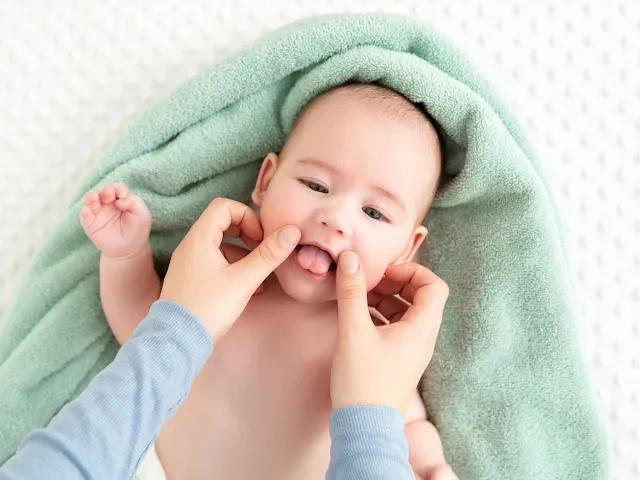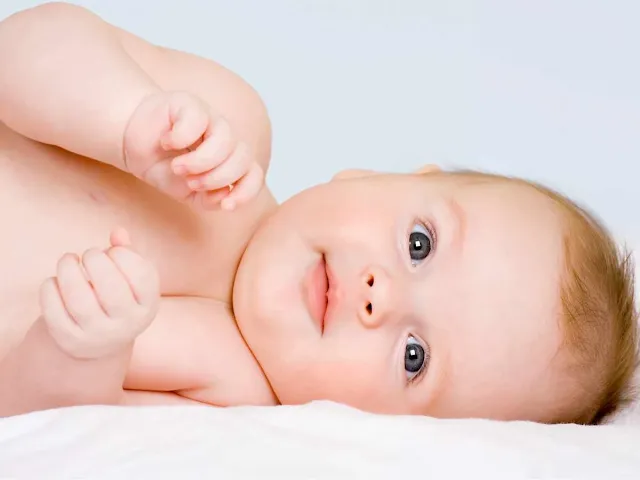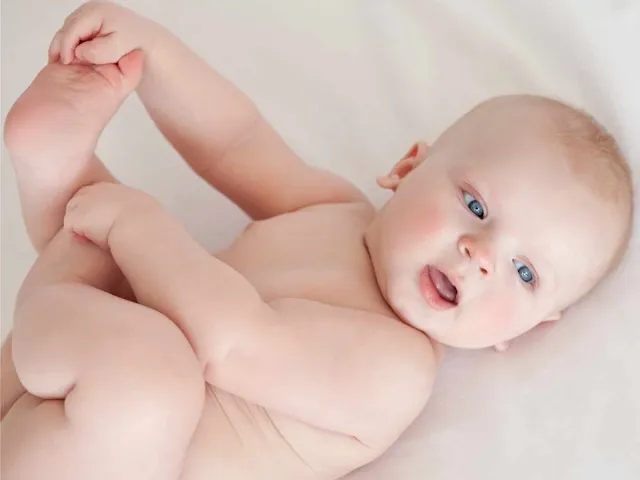The Must-Follow Skin Care Regimen for Your Little One

As baby skin is very soft and smooth, the rate of skin problems is high among them. Skin problems like rashes, red spots, scabies, dry skin, sores, itching, and scratch marks are seen in children. Improper care of a baby's skin, changes in weather and environment, and carelessness of adults, and children themselves are responsible for skin problems.
The right way to take care of a baby's skin and the dos and don'ts of skin care are discussed in this article.
Caring for baby's skin
Skin is one of the largest human organs. Skin is said to be the only mirror of the body. If there is an injury anywhere on the skin or any disease inside the body, it affects the skin. A person's health and illness can also be determined by looking at the skin.
Baby's skin is much softer, smoother, and sensitive than the skin of people of other ages. Therefore, the baby's skin has problems with minor injuries, mild cold weather, cold water, heat of sun, and fire. From separating the baby's pulse from the mother's pulse at the time of birth, the skin of the baby's entire body including lips, tongue, nose, and ears should be taken care of.
Being very sensitive skin, it needs to be taken care of very carefully. If the skin care is not careful, small children can suffer from various skin diseases. For which the child has to suffer a lot. A simple skin problem can turn into a serious disease. So the family should be aware that the baby's skin care should be done properly.
Ways to take care of baby's skin

Whether anyone else in the family is aware or not, the child's mother must be aware. Know how to take proper care of baby's skin. Here are some proper ways to take care of baby skin:
Taking care of the baby's pulse
Skin care begins with a pulse. If the pulse is cut properly, the pulse will be protected from various skin infections. After taking the baby's pulse, the pulse remains outside the baby's abdomen for at least 2 weeks. Some babies dry up after 1 week and some take 3 weeks to dry up. It falls off on its own after drying. So be careful not to try to remove the pulse using any material outside. The area around the pulse should always be kept clean and dry.
Bathe the baby carefully
No need to shower every day. The mother should not bathe the baby immediately after delivery. 3-4 days a week is enough. Bath water should be lukewarm. The water should be slightly warmer than normal temperature water. Bathing should be done indoors or in the bathroom instead of in the open. Water cannot be poured on the head and body. Clean the body gently with a soft cloth or sponge.
Adult soap should never be used to bathe a child. Baby soaps are available in the market, which are suitable for children's skin. Bathe with that baby soap. Clean the baby's face and around the eyes with water only, do not use soap.
Children should not be kept in water for more than 10 minutes. Within this period, the body should be wiped with a dry and clean cloth immediately after bathing.
Keep baby away from heat
Mild winter sunlight is not a problem. But do not keep the baby in the hot sun. If you need to go outside for any reason, wear clothes that protect the child from the heat of the sun and a hat. Be careful not to dehydrate the baby in hot weather. The baby should be kept away from dehydration by frequent feeding of breast milk or formula.
Keep baby free from dry skin
Due to dehydration and cold, the skin suffers from dryness. Baby lotion, petroleum jelly, Vaseline, or moisturizing cream should be massaged on the skin so that the baby's skin does not become dry. It is good to moisturize baby's skin 2-3 times a day to keep it free from dryness. Once in the morning, once after the shower when the body is still wet - these two times are good. If you want, you can also apply a moisturizer at night before going to bed.
The ingredients of the moisturizer must be suitable for the baby's skin. Those that are used for adult skin should not be used on children.
Aloevera can also be used as a skin moisturizer. Young babies need frequent feedings to prevent skin dryness due to dehydration.
Remove baby scratches
Scabies are more common during excessive heat, especially during summer. Blemishes form when the pores become blocked. The child's back, arms, and neck are more scratched. Besides, the fried parts of the body are also scratched. Using oil or oily products on the skin clogs the pores and causes itchiness. So avoid applying oily products as much as possible.
The child should be kept at a normal and somewhat cool temperature so that he does not sweat or get too hot. In case of sweat, wet a clean cloth in cold water and wipe the child's body.
Anti-scratch powder can be applied to the baby. However, the powder must be suitable for the baby's skin. The smell of the powder can cause respiratory problems so the powder is said to be avoided.
Diapering the baby
The diaper should be clean, soft, and slightly loose in size. Care should be taken that the diaper is not too tight. Using tight and wet diapers can cause rashes and red spots. which is a skin infection. Liquid absorbent, not tight, clean, and soft cloth diapers should be selected. Do not put wet diapers on the baby and do not leave them on for long periods. Change the diaper once it gets wet.
Keep baby dandruff-free
From 3 weeks to 3 months after birth, a kind of light yellow-colored substance like dandruff is formed on the scalp of the baby. In addition to the scalp, it can also be on the eyebrows, near the ears. This is due to excess oil consumption and sweating. Some babies can get this on their skin even if they don't use oil. This layer of dirt mostly clears up on its own.
If you want to remove it yourself in a short time, you can wash your head with a shampoo suitable for baby skin. But it would be better not to do that, Because shampoo can get into a baby's eyes. Allow the dirt layer to drain naturally. Reduce the use of oil on the head. And make sure that the baby does not sweat.
Clipping the baby's nails
A child's fault for skin problems is caused by his nails. When the nails grow, the nails scratch and cause wounds in different parts of the body. Although the nails of young children look small and tender, they are very sharp. In order not to damage the baby's skin from nail scratches, the nails should be cut regularly in a week.
Make the child wear the right clothes
Buy or make baby clothes keeping in mind that they are not stiff and scratchy. Cotton cloth is very good for a baby's skin. Because the use of cotton does not cause any spots, wounds, rashes, or scratches on the skin and air can move easily in the body. So choose the right type of clothes for your baby.
What should not be done to the child

- Babies under 1 year should not be bathed frequently. Bathing 4 times a week is enough. It is not right to reduce it again. If you don't wash and clean regularly, the skin will become dry and accumulate dirt.
- Children's clothes should not be kept unclean. Use mild and mildly scented detergents for washing clothes. Harsh detergents contain high levels of alkali and are harmful to delicate skin.
- Mustard oil should not be applied to the baby. Olive-oil is good for baby skin.
- Lotions, moisturizers, oils, detergents, soaps, etc. Adults should never be used on children.
- Many people kiss the baby in the mouth. It cannot be done and no one can be allowed to do it. Because kissing on the mouth can cause germs from other people's mouths to enter the baby's mouth and cause sores.
Conclusion
Taking care of the baby's skin is just as important as feeding and moving it. If there is an injury on the soft skin in childhood, many people will be scarred for life. If there is any problem with the baby's skin, it should be taken to the doctor after observing it for a maximum of one week, if there is no improvement.
FAQs:
Is it normal for the baby's skin to be red?
When a baby is first born, the skin is dark red to purple. When the baby starts breathing air, the color turns red. This redness usually starts to fade within the first day. A child's hands and feet may remain blue for many days.
Is shea butter good for baby itching?
Dry skin needs constant hydration due to skin barrier abnormalities. Shea butter is an excellent natural treatment for relieving the feeling of tightness and itching. It is rich in saturated and oleic fatty acids and prides itself on regulating and retaining skin moisture.
Does shea butter relieve baby eczema?
Rich in vitamins A, E, and F, shea butter is a natural treatment for eczema that can help reduce flare-ups, reduce scarring, and relieve itchy, itchy skin. It's hard to believe just one ingredient.
Ways to brighten baby's skin naturally?
Make a paste with sandalwood, turmeric and saffron, and milk and apply it on your baby's body, keep it dry for 10 minutes, it helps your baby's skin color change naturally, it also helps fight skin infections.







